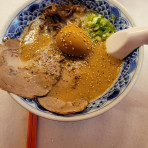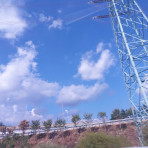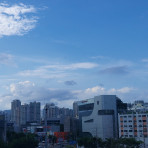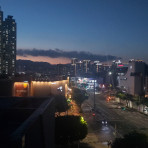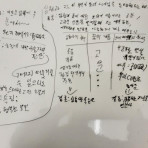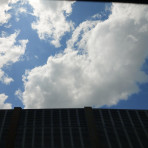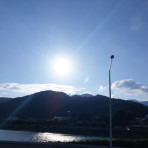US must better engage allies on Taiwan: experts
본문
Wed, 14 Feb 2024 13:33:24 -0500

It’s not always clear to America’s allies why they should devote any time or attention to the disputed sovereignty of Taiwan, especially when they have enough problems in their immediate backyards.
That’s the finding of a report released this week by the Center for Strategic and International Studies, or CSIS. It says the United States needs to do more to engage its partners around the world to build the case for why stability in the Taiwan Strait is in their self-interest.
So far, that’s a task where American leaders have come up short, said Ryan Hass, a senior fellow at the Brookings Institute and one of the report’s authors, at an event to launch the report on Wednesday.
“Oftentimes in Washington, we think of the United States and Taiwan as the good guys, China as the bad guys, and it’s a fight between good and evil,” Hass said. “That isn't how this issue is viewed in many other parts of the world, where the narrative is genuinely contested.”
Hass said the prevention of a war would not only be achieved by the “count of bullets, missiles, planes or ships” available to deter an invasion. Instead, he said, “credible warnings to Beijing of the global consequences” of a conflict would play a large role.
Report findings
The CSIS report – entitled “Building International Support for Taiwan” and funded by the Taipei Economic and Cultural Representative Office, which is the diplomatic mission of Taiwan in Washington – details how the Taiwan issue is viewed by many of America’s allies and partners.
Drawing on inputs from over a dozen foreign policy experts from countries like Japan, India, France, Germany, Australia, South Korea, the United Kingdom and Canada, the report found glaring differences when compared to the way Taiwan was viewed in Washington.
“It is not a compelling [and] clear story, necessarily, in much of the international community that China is the only one that is contributing to some of the instability in the region,” said Jude Blanchette, a China expert at CSIS and another of the report’s authors, on Wednesday.
Assault boats take part in naval drills in Kaohsiung, Southern Taiwan on Jan. 31, 2024. Taiwan is holding spring military drills amid threats from China, which claims the island as its own territory that it is determined to annex, possibly by force. (Johnson Lai/AP)
Blanchette pointed to former House Speaker Nancy Pelosi’s controversial August 2022 visit to Taiwan, which followed a long line of congressional delegations to the island but sparked an outcry from Beijing that took more than a year of diplomacy to put to bed.
He said the destabilizing effects of such trips by U.S. lawmakers “are clearly amplified by a very aggressive Chinese propaganda campaign” that overplays any damage, but that global perception was often still that Washington was as responsible as China for risking conflit.
“But if we're just … looking at who is the destabilizing actor here, there really is only one country actively threatening a military attack on a neighboring democracy, and that is China,” Blanchette said, describing Beijing’s coercive actions against Taiwan as “a daily barrage.”
Nevertheless, the failure of Washington to effectively counteract that view could prove damaging in itself, according to the report, which says it could impact future global support for the defense of Taiwan.
“However tenuous such arguments may seem, Washington and its partners must recognize that such narratives hold more sway in many parts of the world than is appreciated,” the report says.
“The more accepted Beijing’s narrative becomes … the less political space there will be for countries to contribute to coalitional efforts to preserve peace and stability in the Taiwan Strait,” it says.
Costly conflict
But the report also says more needs to be done to spread awareness of the damaging consequences of an attempted invasion of Taiwan.
It notes an estimate from Bloomberg that the global costs of a conflict over Taiwan could reach nearly $10 trillion – or about 10% of global economic output – due to the centrality of the Taiwan Strait to global shipping and of the island itself to the microchip industry.
Nearly 90% of world shipping by tonnage passes through the Taiwan Strait each year, according to a Bloomberg estimate, while the island’s dominant microchip industry manufactures an estimated two-thirds of all of the world’s microchips and 90% of the most advanced ones.
A coast guard ship sails at the Port of Taipei in Taipei, Taiwan Feb. 9, 2021. It is estimated that 90% of world shipping by tonnage passes through the Taiwan Strait each year. (Ann Wang/Reuters)
The latter has been called Taiwan’s “Silicon Shield” in its battle to remain independent of Beijing, with leaders on the democratic island for decades betting – thus far, correctly – that the enormous costs of a conflict to global supply chains will attract help to deter an invasion.
In the end, hammering home those points may be key to getting more international buy-in, especially from developing economies, said Manoj Kewalramani, chairperson of the Indo-Pacific Studies Programme at the Takshashila Institution in Bengaluru, India, on Wednesday.
For many of those countries, the costs of a conflict over Taiwan would not be abstract, Kewalramani said, but rather quite damaging.
“From an Indian perspective,” he said, “it's important for countries around the world for the narrative to shift from ‘What would be the ask from us?’ to ‘What can we do because it is in our interest to do?’”
Edited by Malcolm Foster.

It’s not always clear to America’s allies why they should devote any time or attention to the disputed sovereignty of Taiwan, especially when they have enough problems in their immediate backyards.
That’s the finding of a report released this week by the Center for Strategic and International Studies, or CSIS. It says the United States needs to do more to engage its partners around the world to build the case for why stability in the Taiwan Strait is in their self-interest.
So far, that’s a task where American leaders have come up short, said Ryan Hass, a senior fellow at the Brookings Institute and one of the report’s authors, at an event to launch the report on Wednesday.
“Oftentimes in Washington, we think of the United States and Taiwan as the good guys, China as the bad guys, and it’s a fight between good and evil,” Hass said. “That isn't how this issue is viewed in many other parts of the world, where the narrative is genuinely contested.”
Hass said the prevention of a war would not only be achieved by the “count of bullets, missiles, planes or ships” available to deter an invasion. Instead, he said, “credible warnings to Beijing of the global consequences” of a conflict would play a large role.
Report findings
The CSIS report – entitled “Building International Support for Taiwan” and funded by the Taipei Economic and Cultural Representative Office, which is the diplomatic mission of Taiwan in Washington – details how the Taiwan issue is viewed by many of America’s allies and partners.
Drawing on inputs from over a dozen foreign policy experts from countries like Japan, India, France, Germany, Australia, South Korea, the United Kingdom and Canada, the report found glaring differences when compared to the way Taiwan was viewed in Washington.
“It is not a compelling [and] clear story, necessarily, in much of the international community that China is the only one that is contributing to some of the instability in the region,” said Jude Blanchette, a China expert at CSIS and another of the report’s authors, on Wednesday.
Assault boats take part in naval drills in Kaohsiung, Southern Taiwan on Jan. 31, 2024. Taiwan is holding spring military drills amid threats from China, which claims the island as its own territory that it is determined to annex, possibly by force. (Johnson Lai/AP)
Blanchette pointed to former House Speaker Nancy Pelosi’s controversial August 2022 visit to Taiwan, which followed a long line of congressional delegations to the island but sparked an outcry from Beijing that took more than a year of diplomacy to put to bed.
He said the destabilizing effects of such trips by U.S. lawmakers “are clearly amplified by a very aggressive Chinese propaganda campaign” that overplays any damage, but that global perception was often still that Washington was as responsible as China for risking conflit.
“But if we're just … looking at who is the destabilizing actor here, there really is only one country actively threatening a military attack on a neighboring democracy, and that is China,” Blanchette said, describing Beijing’s coercive actions against Taiwan as “a daily barrage.”
Nevertheless, the failure of Washington to effectively counteract that view could prove damaging in itself, according to the report, which says it could impact future global support for the defense of Taiwan.
“However tenuous such arguments may seem, Washington and its partners must recognize that such narratives hold more sway in many parts of the world than is appreciated,” the report says.
“The more accepted Beijing’s narrative becomes … the less political space there will be for countries to contribute to coalitional efforts to preserve peace and stability in the Taiwan Strait,” it says.
Costly conflict
But the report also says more needs to be done to spread awareness of the damaging consequences of an attempted invasion of Taiwan.
It notes an estimate from Bloomberg that the global costs of a conflict over Taiwan could reach nearly $10 trillion – or about 10% of global economic output – due to the centrality of the Taiwan Strait to global shipping and of the island itself to the microchip industry.
Nearly 90% of world shipping by tonnage passes through the Taiwan Strait each year, according to a Bloomberg estimate, while the island’s dominant microchip industry manufactures an estimated two-thirds of all of the world’s microchips and 90% of the most advanced ones.
A coast guard ship sails at the Port of Taipei in Taipei, Taiwan Feb. 9, 2021. It is estimated that 90% of world shipping by tonnage passes through the Taiwan Strait each year. (Ann Wang/Reuters)
The latter has been called Taiwan’s “Silicon Shield” in its battle to remain independent of Beijing, with leaders on the democratic island for decades betting – thus far, correctly – that the enormous costs of a conflict to global supply chains will attract help to deter an invasion.
In the end, hammering home those points may be key to getting more international buy-in, especially from developing economies, said Manoj Kewalramani, chairperson of the Indo-Pacific Studies Programme at the Takshashila Institution in Bengaluru, India, on Wednesday.
For many of those countries, the costs of a conflict over Taiwan would not be abstract, Kewalramani said, but rather quite damaging.
“From an Indian perspective,” he said, “it's important for countries around the world for the narrative to shift from ‘What would be the ask from us?’ to ‘What can we do because it is in our interest to do?’”
Edited by Malcolm Foster.
좋아요3
이 글을 좋아요하셨습니다
관련링크
등록된 댓글이 없습니다.

